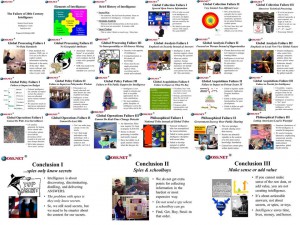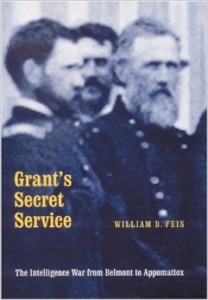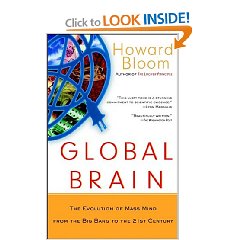
BRIEFING: 2002 Steele Failure of 20th Century Intelligence
Continue reading “2002 FAILURE of 20th Century Intelligence”

BRIEFING: 2002 Steele Failure of 20th Century Intelligence
Continue reading “2002 FAILURE of 20th Century Intelligence”

Greg Palast
![]() Let Freedom Ring–Truths the Corporate Thieves Can't Hide
Let Freedom Ring–Truths the Corporate Thieves Can't Hide
May 29, 2002
The most distressing aspect of this book, written by an American expatriate publishing largely through newspapers in the United Kingdom, is that all of this information should have been published in U.S. newspapers in time to make a difference–to inform the voting public–but was not. One can only speculate how corrupt our media have become–how beholden to their owners and advertisers–if we cannot get front page coverage of the Florida government's disenfranchisement of over 50,000 predominantly black and democratic voters, prior to the presidential election; or of the raw attacks on our best interests by the International Monetary Fund, the World Trade Organization, and others linked in a “trigger” network where taking money from one demands all sorts of poverty-inducing and wealth theft conditions.
Even more timely are his stories about the current Administration continuing a practice of the former Administration, spiking, curtailing, forbidding intelligence investigations into Saudi Arabian government funding of bin Laden's terrorism as well as Pakistani production of the “Islamic” atomic bomb.
His exposes of corporate misdeeds, some criminal, some simply unethical, all costing the U.S. taxpayer dearly, are shocking, in part because of their sleaziness, in part because our own newspapers do not dare to fulfill their role as envisioned by the Founding Fathers, of informing and educating the people of this Nation upon which the government depends for both its revenue and its legitimacy.
Although I take this book with a grain of salt (wondering, for example, why he did not ensure that Gore's campaign had all that he could offer in time to challenge the vote disenfranchisement as part of the Supreme Court case), there is enough here, in very forthright and sensible terms, to give one hope that investigative journalism might yet play a role in protecting democracy and the future of the Republic.


William B. Feis
4.0 out of 5 stars Well-Intentioned, Terrible Maps and No Timelines, May 28, 2002
I do not regret taking the time to read this book, and it is a well-intentioned worthy effort–however, given a new choice, I would probably go with the alternative, by an intelligence professional, “The Secret War for the Union: The Untold Story of Military Intelligence in the Civil War.”
I give the author, not an intelligence professional, high marks for the research, the story-telling, and the consistent themes. I give the editor and publisher low marks for the terrible maps (many seem to have lost their unit location markings and other key annotations) and the lack of tables showing “who knew what when…”
Three themes stayed with me as I put the book down:
1) A great deal can be accomplished in terms of intelligence with even a very small number of people–as few as 1-2 on staff, 3-5 behind the lines. We in America have substituted billions for technology and a cast of close to 100,000, for rather poor intelligence and counterintelligence.
2) Maps, especially “information maps,” are worth their weight in gold. I was reminded by this book that intelligence has in the past been an off-shoot of topographical engineering and map making, and do believe that we must restore the “hard-wired” connection between geospatial information and the “data” that our human, imagery, and signals professionals seek out.
3) Deserters, prisoners, and legal travelers are a gold mine of information and must, must, must be systematically exploited. No matter the degree to which they may offer up untruths and deceptions, the bottom line is that any commander who fails to plan for the systematic exploitation of these human resources, and to do so in a timely fashion, is derelict in their duty. As I recall, we do not yet have a proper table of organization or equipment in the U.S. force inventory for handling such individuals–the worst battalion, or the over-burdened military police, or some kludge collection of reservists, seems to end up being the solution each time. This dereliction is even more costly in “low intensity” environments.
I will not make too much of it, but I was especially pleased to see how much of Grant's intelligence came from enemy newspapers.
The author seeks to make much–perhaps too much–of how Grant did not allow himself to be immobilized by a lack of intelligence, substituting initiative when intelligence was lacking, but I for one don't buy it. What I see in the book is a substantive appreciation by the General Commanding of the role of intelligence, however poorly manned or funded, and that makes all the difference.

It is always a shame when a really great book is badly marketed and consequently does not reach as many professionals and citizens as it should. This is such a book.
What the blurbs don't tell you, such as they are, is that the author was one of the true pioneers in the world of open source intelligence (creating useful actionable intelligence using only legal and ethical sources and methods). His brilliant efforts in the early 1990's were easily a decade ahead of where the Foreign Broadcast Information Service (FBIS) is today–using a wide variety of Latin American newspapers and lots of brainpower, he was able to create tactical intelligence that contributed significantly to the success of operational missions by the U.S. Southern Command and the Drug Enforcement Administration, leading the destruction of cocaine laboratories, the interdiction of aircraft, and the arrest of key people in the transnational criminal structure.
This book is an essential reference for any agency or command library concerned with asymmetric warfare, unconventional threats, and non-traditional methods of providing intelligence support to those responsible for dealing with anything other than traditional war. The sources and methods that the author discusses are especially pertinent to the study of terrorism, proliferation, transnational crime, cross-national toxic dumping, and other sub-state and non-state threats.
Henry Kissinger is absolutely right when he laments the lack of any serious consideration of foreign policy in recent presidential and congressional elections, and that is what 9/11 must change–this book is intended to be useful to citizens as well as government and business intelligence professionals. It lays out with great precision (see the index) both $11.6 billion dollars (out of $30 billion a year) in potential savings that could be applied to the new craft of intelligence, and it recommends with great precision all that should be in a new National Security Act of 2002.
Intelligence in the 21st Century is too important to be relegated to a chaotic cluster of secret government agencies. It is time for all citizens to take an interest in intelligence, to migrate the proven process of intelligence (there is a great deal that is good about the U.S. intelligence community) into the business sector as well as over to the sovereign states and their localities, and to demand of our elected representatives a proper accounting for the failure, and measures to prevent future failures.

5 out of 5 Stars
Live and Let Die Group Dynamics, Bacteria Are Winning
July 13, 2001
Very very few books actually need to be read word for word, beginning with the bibliography and ending with the footnotes. This is one of those books. While there are some giant leaps of faith and unexplained challenges to the author's central premises (e.g. after an entire chapter on why Athenian diversity was superior to Spartan selection, the catastophic loss of Athens to Sparta in 404 BC receives one sentence), this is a deep book whose detail requires careful absorbtion.
I like this book and recommend it to everyone concerned with day to day thinking and information operations. I like it because it off-sets the current fascination with the world-wide web and electronic connectivity, and provides a historical and biologically based foundation for thinking about what Kevin Kelly and Stuart Brand set forth in the 1970's through the 1990's: the rise of neo-biological civilization and the concepts of co-evolution.
There are a number of vital observations that are relevant to how we organize ourselves and how we treat diversity. Among these: